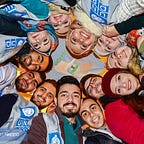Rural Women in Syria: Overcoming livelihood challenges at frontlines
October 15th is the UN International Day of Rural Women. It was established in 2008 in recognition of “the critical role and contribution of rural women being played, in enhancement of agricultural and rural development, with the aim of improving food security and eradicating poverty in the countryside”
In fact, rural women play a leading role in agriculture, food security and nutrition. They manage natural resources through unpaid labor and ever continuing hard work. When family is threatened, women are often at the frontline to defend livelihood resources.
Throughout more than nine years of crisis, rural women have had to bear the brunt of extremely hard circumstances, including scarcity of food and other life necessities. The struggle to maintain adequate nutrition, clothing and healthcare for the whole family became the real challenge, as the countryside witnessed extensive conflict and destruction of productive assets and livelihoods.
The agriculture sector has been particularly hard-hit by the crisis in Syria, and women face a harder challenge because their work is often invisible or unpaid. In 2019, UNDP supported the most vulnerable farmers, with a particular focus on women and female-headed households, by providing them with seeds, pesticides, fodder, beehives, livestock and other farming inputs to help them restart farming, dairy production and husbandry. A total of 6,356 farmers (51% men and 49% women) received targeted support by UNDP allowing them to regain their sources of livelihood, producing and supplying food to their families and to the local market.
“ My son Ziad, can now have one egg for himself without sharing it with his brothers” says Huda from Deir ez-Zur with a smile. “ I lost my husband seven years ago. I was left with three children; so I joined the “Support to Agriculture” project implemented by UNDP in Deir ez-Zur. I received a grant of hens and feed. Now I have my own private small business and a good income to support my family”
UNDP’s interventions to support farmers were implemented in the most affected areas, with a special focus on the newly accessible areas. In Al-Hassakeh, farmers were supported with beekeeping inputs as well as training, so they could produce honey for sale in the market. In Ar-Raqqa and Deir ez-Zur, and in Harasta town in Rural Damascus, UNDP distributed sheep to 2,343 farmers (including 1,592 women). UNDP provided tailored training to farmers in dairy and honey production, as well as in fertilizing, with a special focus on organic fertilizers such as composting.
Wadha from Qamishly countryside in Al-Hassakah is a mother of seven children. She lost her husband and has no income to secure living necessities for her family. “I never thought that bees will change my life. In light of the scarcity of work opportunities in the countryside of Qamishli, UNDP offered me an opportunity to participate at a Beekeeping foundation workshop. They provided me with three bee hives and bee keeping tools to help start my small business. With guidance from the UNDP team, I was able to increase my project to ten hives, and this guarantees my family a sustainable income. My best moments are when I harvest the delicious golden Honey”.
“I received two sheep and 240 kg of fodder. With the continuous supervision and guidance from the UNDP team. I learned sheep breeding, and now we have two newborn lambs, the sheep provide us with sufficient daily milk to sell at the market and consume, in return I give them care and love” these are the words of Fatima from Ar-Raqqa, who has no children and lives with her blind husband.
The United Nations Development Programme in cooperation with international and local partners through comprehensive support of livelihood activities for families affected by the crises works to improve the living standard of these families to increase their income in a manner that guarantees them an adequate and sustainable standard of living.
In the words of UNDP Resident Representative, Ramla Khalidi, “Women in rural communities are often the custodians of traditional knowledge, which is key for their communities’ livelihoods, resilience and culture. They are the key ‘Agents of Change’ for achieving the transformational economic, environmental and social changes required for sustainable development. Empowering rural women by creating employment opportunities contributes to inclusive and economic recovery.”
In the villages of As-Safira town, the mud houses inhabited by villagers are usually exposed to cracking due to weather factors, especially during the rainy months, so the owners take advantage of the summer season to repair cracks by using mud putty and hay as the basic materials to rehabilitate their houses. Under the UNDP project “support to the affected farmers in the villages of As-Safira”, a number of residents of the villages of As-Safira have received emergency aid to restore their homes.
Fatima works in agriculture at Abu Dreikha village and the surrounding villages, while in summer season she works on the restoration of mud houses accompanied by her relatives in the Village. Fatima is a single mother of a boy and three daughters. She became the sole breadwinner for her family after her husband suffered serious injury that left him homebound. Like many women in the village, Fatima learned the profession of repairing mud houses from her father and grandfather, who built these houses and lived in them for decades.
“The winter in the countryside is usually very harsh, but professionalism helps alleviate part of this harshness” according to Fatima.
Over the years, a number of initiatives have been undertaken by governments, International organizations and social organisations to address the issues faced by women and bridge the gap created by society. However, there is still a long way to go before women can truly become empowered. To achieve gender equality, it is crucial that women are empowered with access to knowledge, skills and assets, and UNDP Syria is member of this journey.
___________________________________
Written by Rana Saqr, UNDP Syria
